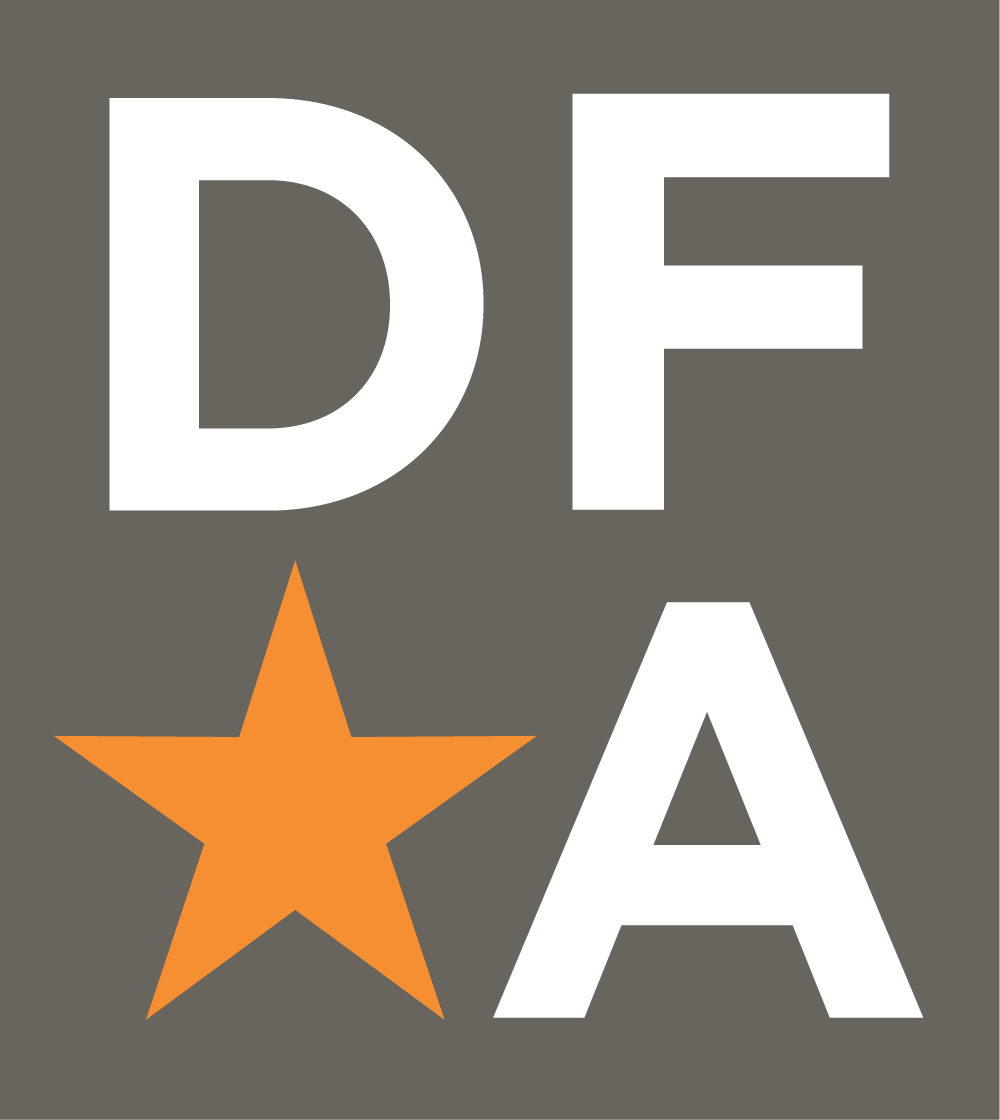Shaping Tomorrow and Reflections on Creativity and Collaboration
Guest Blog from Amy Stefanski, DFA’s Director of Programs
As the new year and semester begin, it’s exciting to look ahead while celebrating our Design for America (DFA) students' progress. Across our studios, student members are diving into the design process—exploring their communities through empathy-driven research, brainstorming innovative ideas, and, in some cases, already collaborating with community partners to craft impactful solutions.
But beyond the tangible progress of their projects, what stands out most is the growth in their skills, confidence, and understanding of what it means to create meaningful change. DFA isn't just about learning the steps of human-centered design—it's about empowering students to align their passions with real-world challenges. Through this, they are creating pathways to impact that feel deeply authentic and inspiring.
Skills in Action: Tackling Challenges Head-On
Our students are deep into the Immerse and Reframe phases of the design process, where they apply their skills to explore and refine the “How Might We” questions that guide their work. In these phases, curiosity meets critical thinking, and our teams dive into understanding complex challenges while reimagining possibilities.
Here are some of our studio’s “How Might We” and “How Can We” questions in action:
DFA @ Illinois College: How can we increase accessibility awareness on the IC campus?
DFA @ the University of Illinois Champaign-Urbana: How can we address littering on campus resulting from bars by collaborating with these organizations to implement sustainable practices, enhance waste disposal options, and promote a culture of responsibility among attendees?
DFA @ Rhode Island School of Design | Brown University: How might we identify and address barriers to economic opportunities for Providence Housing Assistance residents through an accessible digital interface?
DFA @ University of Cincinnati: How can we encourage voting in local elections within the student body while remaining neutral and keeping it interesting?
DFA @ Johns Hopkins University | Maryland Institute College of Art: How might we reduce overwhelm and frustration for individuals experiencing executive dysfunction to help with planning, organizing, and remembering tasks? See LinkedIn Post Here
These questions reflect our students' diverse challenges and showcase their ability to blend empathy, creativity, and strategic thinking to create meaningful solutions.
We deeply admire the thoughtfulness and creativity evident in the solutions our students develop. They collaborate across fields and listen with empathy to understand their users' needs. This brings together designers, engineers, social scientists, and others to craft holistic solutions and navigate ambiguity.
For every solution a project team decides to move forward with, many more are intentionally set aside. Yet, even those “discarded” solutions remain viable, innovative possibilities, a testament to their ability to explore every angle of a challenge and turn ideas into action.
Part 2: Turning Ideas into Action
As DFA students transition from exploring challenges to crafting impactful solutions, their dedication to making a difference shines through. Guided by empathy and fueled by passion, they’re transforming insights into action by collaborating with community partners to address real-world challenges and drive meaningful change.
From prototyping innovative ideas to building connections with local organizations, DFA teams are hard at work bringing their visions to life. Here’s a glimpse into some of their exciting collaborations:
DFA @ Carnegie Mellon University: Students are partnering with Angel’s Place to streamline onboarding processes, reducing staff time spent on training while maintaining quality.
DFA @ Colgate University: The Climate Change Education Project is reimagining climate change education in Central New York, creating more engaging and impactful learning experiences.
DFA @ University of Notre Dame: A team is working with Brain Lair Books, an independent bookstore, to design marketing strategies that increase foot traffic and foster deeper community connections.
DFA @ NYU: Students hosted Design Education Sessions on campus, introducing over 180 participants to the full spectrum of human-centered design.
These projects exemplify the collaborative and holistic approach DFA teams take to problem-solving. Whether addressing sustainability, accessibility, education, or healthcare, our students are demonstrating the power of design thinking to create solutions that truly matter.
Passion Meets Purpose
Our students aren’t just participants—they’re leaders. By tackling challenges that resonate with them personally, they find new ways to connect their work to the issues they care about most.
For instance, a team from DFA at the University of Illinois at Urbana-Champaign created Illini Swap, a student-oriented platform to make sustainable behaviors fun and engaging, sparking interest in sustainability across campus. Another team is rethinking how to improve bus stops in Champaign-Urbana, making them safer, more comfortable, and more user-friendly for students and the wider community.
It doesn’t stop there! DFA @ The University of Notre Dame teams have been working on projects with Unity Gardens, Girls on the Run, and HealthPlus. This clearly demonstrates how our students partner with local organizations to address critical issues, from fostering healthy habits to strengthening community connections.
Looking Ahead
This past fall was nothing short of inspiring. Our studios hosted engaging events, seen incredible turnouts, and watched students grow into confident changemakers. Whether they raised awareness about voting through civic engagement for students or designing solutions to reduce littering on campus after bar nights, their work is making an impact.
There’s still much to do: more ideation, testing, and refinement. However, one thing is certain: DFA students have the skills, passion, and mindset to create meaningful change—and they’re just getting started!
To our students and community partners—thank you for your dedication, energy, and creativity. You inspire me every day. Together, we’re shaping a brighter, more thoughtful future, one project at a time.


